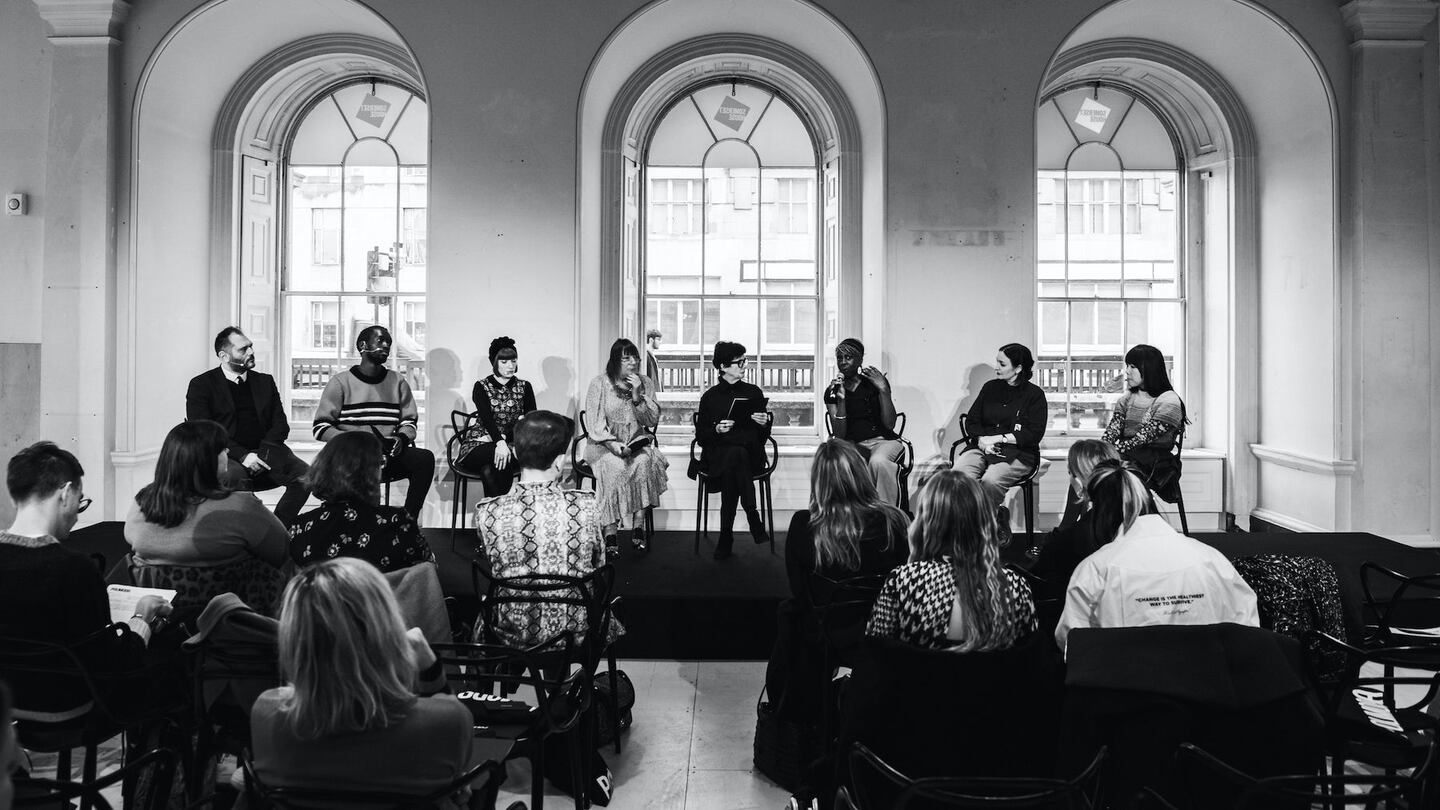
The Business of Fashion
Agenda-setting intelligence, analysis and advice for the global fashion community.

Agenda-setting intelligence, analysis and advice for the global fashion community.

LONDON, United Kingdom — “Fashion must be….” What word would you use to complete this sentence?
The Florentine fashion school, which offers courses in fashion design, fashion business, art direction and design management, created this panel series to offer industry experts the opportunity to reflect on fashion and the various ways education can adapt and grow with the obstacles of today. For this, the fourth in a global series of annual talks entitled "Fashion Displacement" — previously held in New York (2016), Florence (2017) and Berlin (2018) — Loppa selected over 50 words for participants to dissect.
Baroness Young, chair of the All-Party Parliamentary Group on Ethics and Sustainability in Fashion, argued that the word is rooted in a Victorian idea of otherness, while former Daily Telegraph fashion director Hilary Alexander countered that tribalism in this context related to a "human sense of belonging and identity that pre-dates colonialism." Fashion writer Susanna Lau added that fashion today is "less about tribes or being dictated to by heritage media or large conglomerates, fashion has been fragmented and disrupted by Instagram," citing the example of "VSCO Girls," a particular fashion aesthetic that includes oversized t-shirts, Crocs and hair scrunchies, and is defined by a willingness to eschew big brands.
<span>We have to adapt our teaching methods to the ways that this new generation processes information.</span>
This is a sponsored feature paid for by Polimoda as part of a BoF Education partnership. To learn more about Polimoda, please click here.
From analysis of the global fashion and beauty industries to career and personal advice, BoF’s founder and CEO, Imran Amed, will be answering your questions on Sunday, February 18, 2024 during London Fashion Week.
The State of Fashion 2024 breaks down the 10 themes that will define the industry in the year ahead.
Imran Amed reviews the most important fashion stories of the year and shares his predictions on what this means for the industry in 2024.
After three days of inspiring talks, guests closed out BoF’s gathering for big thinkers with a black tie gala followed by an intimate performance from Rita Ora — guest starring Billy Porter.